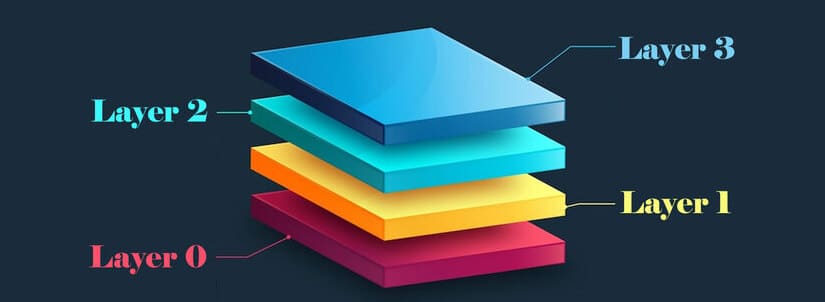BEVM Network is the best response to the growing demands for scalability and functionality in the blockchain ecosystem. Although Bitcoin is the first cryptocurrency and one of the most secure and decentralized, its original structure presents limitations when adapting to the new functionalities required by decentralized applications (dApps).
For this reason, BEVM presents itself as a Layer 2 solution, supported by a completely decentralized computer network designed to extend Bitcoin’s capabilities, integrating it with the Ethereum ecosystem through a scalable structure compatible with the Ethereum Virtual Machine (EVM).

What is Bevm?
BEVM (Bitcoin EVM) is a Layer 2 (L2) solution for the Bitcoin network that provides compatibility with the EVM, integrating decentralized applications from Ethereum into the Bitcoin network and using BTC to pay gas fees for all transactions.
Through its layered structure and the implementation of advanced security mechanisms, the network was designed to catalyze Bitcoin’s adoption within the DeFi ecosystem. Unlike other protocols that have failed in this mission, this solution managed to differentiate itself, offering true decentralization, speed, and reduced fees, contributing to a much more optimal user experience compared to the main BTC network.
The Architecture of BEVM
BEVM integrates the functionality of the Ethereum Virtual Machine (EVM), enabling the execution of Ethereum applications on a network built on Bitcoin. This means that any application or smart contract designed for ETH can be transferred without modifications to BEVM. This enables an unprecedented level of interoperability between both blockchains. To achieve this, the Substrate development framework is used, and it relies on Bitcoin’s Taproot upgrade, a scalability improvement that optimizes the transaction verification process, thus enhancing both speed and efficiency.
Network Layers
BEVM organizes its architecture into four main layers, each designed to optimize and ensure its interoperability and functionality:
- Cross-Chain Interaction Layer: This layer connects BEVM with Bitcoin through Bitcoin light nodes and a proof-of-stake (PoS) consensus mechanism. The nodes ensure that BEVM provides fast data transmission without compromising the integrity of the Bitcoin network, while the PoS consensus ensures that transactions are fast and efficient.
- Consensus Layer: BEVM employs a Byzantine Fault Tolerance consensus system with threshold signatures, allowing up to 1,000 consensus nodes to operate without compromising security or overloading the system, even during periods of high traffic.
- Virtual Machine Layer (VM Layer): Using Substrate, this layer ensures that applications developed on BEVM maintain their compatibility with the EVM. Ethereum developers can use their tools to create applications that run on this network.
- Decentralized Applications (DApp Layer): BEVM offers a complete range of EVM development tools to facilitate the creation and management of dApps. This layer allows developers to connect their projects and access integrated services such as wallets, user management, and transaction functions.

Benefits and Practical Applications
- Adoption and Sustainability: By using BTC as gas, BEVM creates a new use case for Bitcoin, incentivizing the consumption of BTC in each transaction within its network. In addition to providing greater utility, it also offers income opportunities for miners.
- Cost and Speed Optimization: It reduces costs and increases transaction speed by processing them off the main chain and then recording the results on Bitcoin.
- Expansion of Bitcoin’s Functionality: Thanks to its compatibility with EVM, BEVM extends the available functionalities for BTC users, enabling applications that go beyond simple value transfer. Developers can create DeFi applications, NFT markets, and DAOs on the Bitcoin network, using BTC as gas and benefiting from its stability and decentralization.
Comparison with Other Layer 2 Solutions
The characteristic that makes this blockchain unique is also its main strength. BEVM offers a completely decentralized network with an interoperability model that allows complex use cases without relying on third parties. Essentially, it is much more user-friendly, complete, and robust than other Layer 2 solutions in complex scenarios that require diverse tools.

Challenges and Future Perspectives
Although BEVM has promising features, it must deal with several technical and adoption challenges. Creating a completely decentralized and secure Layer 2 network on Bitcoin requires overcoming technical barriers. Furthermore, the network depends on the adoption of both users and developers, who will need incentives to migrate from already established platforms. Finally, the regulation of DeFi applications and blockchain solutions like this one is an area that still has much room to evolve. Its proper implementation will be crucial for these types of solutions to provide users with an optimized experience.
Conclusion
BEVM Network is an innovative project that has the potential to transform Bitcoin’s functionality within the blockchain ecosystem. Its completely decentralized L2, with EVM compatibility and using BTC as gas, could expand Bitcoin’s possibilities to include DeFi, NFT, and DAO applications, giving a boost to a wide range of sectors that need to be continuously improved. However, BEVM’s success will depend on its ability to overcome technical challenges, gain community adoption, and adapt to the changing regulation of cryptocurrencies and blockchain technology